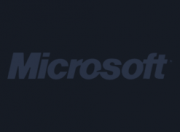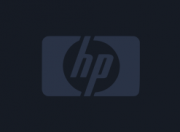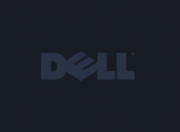You can visit usUS on google +
Google+
Category Archives: News
GNU Texinfo 5.0 Released
Four years after the last release, version 5.0 of Texinfo, the GNU documentation language, has been released. The primary highlight is a new implementation of makeinfo info in Perl rather than C. Although slower, the new version offers several advantages: cleaner code using a structured representation of the input document, Unicode support, and saner support for multiple output backends. There are over a dozen other improvements including better formatting of URLs, improved cross-manual references, and a program to convert Perl POD documentation to Texinfo.
Windows PC Sales Down 21% Since Windows 8 Launch
NPD has said U.S. sales of Windows devices during the four-week launch of Windows 8 dropped 21 percent when compared to the same period a year ago.
The research firm said that the already-declining sales of notebooks decreased further by 24 percent. Desktop sales, meanwhile, sunk by 9 percent.
“After just four weeks on the market, it’s still early to place blame on Windows 8 for the ongoing weakness in the PC market,” Stephen Baker, vice president of industry analysis at NPD, said. “We still have the whole holiday selling season ahead of us, but clearly Windows 8 did not prove to be the impetus for a sales turnaround some had hoped for.”
During the four weeks since its launch on October 26, Windows 8 was responsible for 58 percent of all Windows device sales. However, comparatively, Windows 7 accounted for 83 percent during its initial four weeks of availability.
Windows 8 tablet sales have been “almost non-existent,” Baker said. It accounted for less than 1 percent of all Windows device sales during the four weeks. Initial sales of Windows 8 devices were also negatively impacted by weak sales of Windows 7 devices during the back-to-school shopping season that left retailers with a considerable amount of unsold inventory.
That said, the average selling prices of Windows devices are said to be higher than they were in 2011. The average price of a Windows 8 notebook increased by about $80 when compared with a Windows 7 notebook a year ago. The increase was partly due to strong sales of Windows 8 touch-screen devices, as well as an increase in the price for mainstream notebooks.
Windows 8 desktops’ average selling price climbed by 10 percent due to demand for all-in-one PCs, in addition to a rise in the price of mainstream desktops.
“The strong performance of Windows 8 notebooks with touchscreens, where Windows 8 truly shines, offers some reason for optimism,” Baker said. “These products accounted for 6 percent of Windows 8 notebook sales at an average price of $867 helping to re-establish a premium segment to the Windows consumer notebook market.”
Despite selling 40 million Windows 8 licenses, sales for the operating system is said to be “well below” Microsoft’s projections. The platform has also been criticized for its part in the ailing growth of the PC industry.
Security Essentials fails latest AV-Test
In a month of uneven Windows 8 news and reviews, Microsoft is taking another hit. This time, its freeware Security Essentials finds itself in the crosshairs.
Independent German security suite evaluators AV-Test.org publish bimonthly tests that rate the effectiveness of the biggest Windows security suites out there, and the recently-published results showed that MSE failed to earn certification on the most recent test. MSE was the only suite to fail out of 24 suites tested on Windows 7 during September and October.
Requests for comment sent to AV-Test.org and Microsoft were not immediately returned. CNET will update the story when we hear back from them.
The news is potentially more damaging for consumers because Microsoft Security Essentials is, according to Opswat’s September 2012 market share report, used by almost 14 percent of the security market worldwide. In the U.S. alone, it commanded nearly 27 percent of the market as of September.
As PC Magazine noted, 16 out of the 23 vendors scored worse this time than during the previous Windows 7-based test in May and June. AVG has AV-Test benchmark its free and paid suites, which accounts for one more suite tested than there are vendors.
Following CNET’s report in September on security suite vendors’ struggles in AV-Test’s Windows XP-based test, there’s a clear downward trend in AV-Test’s results during 2012.
Microsoft Security Essentials has never been a particularly strong antivirus suite when it came to effectiveness, but it wasn’t terrible. Its marks on the previous Windows 7 tests this year in April and May and May and June were good enough to pass the 80 percent prevention mark of zero-day samples on three out of four tests, and reached 76 percent on the fourth test.
However, on the most recent test it couldn’t even crack the 70 percent barrier on zero-day prevention. That, plus a remarkably weak ability to remove infection components, kept MSE from being certified.
It’s rarely a good idea to trust one test results to base an entire judgment on, but there’s no doubt that these scores are a major cause for concern not only for people who use Microsoft Security Essentials, but also because a lot MSE has gone into Windows 8 security.
Nobody wants to deal with a computer virus or malware infection, though, so I’d recommend that people running MSE change to another, better regarded free security suite as soon as possible. Avast or AVG have solid security reputations. The current AV-Test top-rated suite for security efficacy is Bitdefender, but the cheapest version starts at $39.95.
Originally posted at The Download Blog
How Threats Against OS X Have Escalated
In this special edition Threatpost editor-in-chief Dennis Fisher talks with founding editor, Ryan Naraine about Mac security. They discuss why it took longer for the security community to understand the vulnerabilities of the Mac and when these conversations started. You’ll hear how cybercriminals are targeting OS X more than ever before and what you need to know to protect yourself from an attack.




